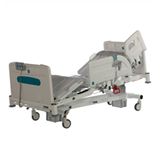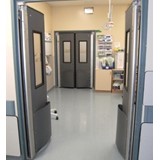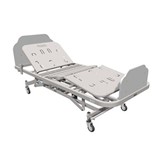Suzie Neylon, CEO of ADS, explained that optimal diabetes care is imperative for hospital in-patients to shorten hospital stays, reduce the complication of infections and improve outcomes especially where co-morbidities exist.
"Patients admitted to hospital for health issues not directly associated with their diabetes are often not in the care of diabetes experts, and education on the importance of good glycaemic control for in-patients with diabetes remains paramount.
"Clinical audits of hospitalised patents from Australia and overseas have reported diabetes prevalence rates of up to 40 per cent. The stress of illness and hospitalisation worsens glucose control and even brings out hyperglycaemia amongst people not previously known to have diabetes.
"Importantly, high glucose levels in hospital have been associated with increased infection rates, poor healing, increased mortality as well as lengthen hospital stays," said Neylon.
The Australian Institute of Health and Welfare estimated the cost of diabetes ?to hospital services in 2008-9 was $649 million, almost doubling the figure from 2004-2005.
Studies have demonstrated when diabetes is promptly and appropriately managed, lengths of hospital stays are reduced, there is lower morbidity and hospitals experience significant cost savings.
One US study estimated that the introduction of a Specialist Inpatient Diabetes Team saved their hospitals $2.2 million per year. In Australia, with casemix and the introduction of Activity Based Funding, it is more important than ever to improve diabetes care, and document diabetes-related co-morbidities.
In 2012, the ADS formulated its Guidelines for Routine Glucose Management in Hospital. The development of this suite of resources strives to raise awareness of the importance of glucose control in hospital, diabetes self-management and the National Diabetes Services Scheme (NDSS) amongst both people with diabetes and hospital staff through a printed resource information set.
These resources will be sent to all hospitals throughout Australia within the next month.













